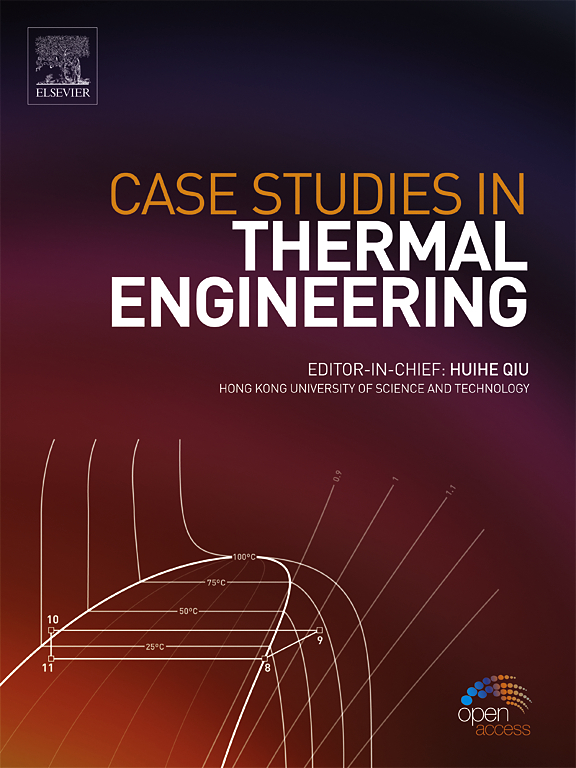Effects of using BN/water nanofluid on the thermal performance, energy saving, and power consumption of a panel radiator heating system
IF 6.4
2区 工程技术
Q1 THERMODYNAMICS
引用次数: 0
Abstract
Heating systems account for a significant portion of global energy consumption, yet conventional fluids like water limit the thermal efficiency of panel radiators. Improving radiator performance while reducing energy use is critical for achieving sustainability goals. This study addresses this challenge by investigating boron nitride (BN)-doped water nanofluid as an advanced heat transfer fluid, which promises enhanced thermal performance and energy savings compared to water. A Type 11 Panel-Convector (PC) radiator was tested experimentally under transient regime conditions with both water and nanofluid. The amount of heat emitted from the radiator to the room and the air-side heat transfer coefficient were determined for both fluids at a radiator inlet temperature of 75 °C. Additionally, energy consumptions during the experiments for both fluids are compared. The results indicate that the desired room temperature was reached in 17 min using nanofluid, while it took 27 min with water. The air-side heat transfer coefficient increased by an average of 71 %, while the heat emission rate improved by up to 45 % compared to water. The use of BN-water nanofluid results in an 8.1 % overall energy savings in the heating system. The BN-water nanofluid significiantly improves radiator performance and overall system energy efficiency.
使用 BN/水纳米流体对板式散热器加热系统的热性能、节能和能耗的影响
本文章由计算机程序翻译,如有差异,请以英文原文为准。
求助全文
约1分钟内获得全文
求助全文
来源期刊

Case Studies in Thermal Engineering
Chemical Engineering-Fluid Flow and Transfer Processes
CiteScore
8.60
自引率
11.80%
发文量
812
审稿时长
76 days
期刊介绍:
Case Studies in Thermal Engineering provides a forum for the rapid publication of short, structured Case Studies in Thermal Engineering and related Short Communications. It provides an essential compendium of case studies for researchers and practitioners in the field of thermal engineering and others who are interested in aspects of thermal engineering cases that could affect other engineering processes. The journal not only publishes new and novel case studies, but also provides a forum for the publication of high quality descriptions of classic thermal engineering problems. The scope of the journal includes case studies of thermal engineering problems in components, devices and systems using existing experimental and numerical techniques in the areas of mechanical, aerospace, chemical, medical, thermal management for electronics, heat exchangers, regeneration, solar thermal energy, thermal storage, building energy conservation, and power generation. Case studies of thermal problems in other areas will also be considered.
 求助内容:
求助内容: 应助结果提醒方式:
应助结果提醒方式:


